Security Service

How do I choose the right VPN service for my needs ?
Choosing the right VPN service is crucial for ensuring your online privacy, security, and accessing geo-restricted content. Here's a guide to help you make an informed decision: 1. Identify Your Needs: Determine what you need the VPN service for, such as privacy and security, accessing geo-restricted content, bypassing censorship, or improving gaming experience. 2. Check the VPN's Location and Jurisdiction: The legal jurisdiction of the VPN provider plays a significant role in your privacy. Look for providers located in countries without strict data retention laws. 3. Encryption and Protocols: The level of encryption and the protocols offered are critical for security. OpenVPN and IKEv2 are considered the most secure and efficient. Avoid VPNs that rely on PPTP or L2TP/IPSec without a separate encryption layer. 4. Server Network and Speed: A vast network of servers worldwide ensures better speed and connectivity. Look for a VPN with numerous servers across different continents. Speed is also crucial, especially if you plan to stream HD videos or download large files. 5. Privacy Policy and Logging: A strict no-logs policy is vital for maintaining your privacy. Always check the privacy policy to ensure they don't collect or share your data. 6. Device Compatibility and User Interface: Choose a VPN that supports all your devices, including smartphones, tablets, and PCs. A user-friendly interface makes it easier to connect and manage your VPN settings. 7. Customer Support: Look for VPNs that offer 24/7 live chat support or at least a responsive ticket system. Good customer service can help resolve technical issues quickly. 8. Price and Value for Money: While free VPNs might seem appealing, they often come with limitations, such as data caps and slower speeds. Paid VPNs offer more features and better performance. Consider the cost against the services provided to determine the best value. 9. Reputation and Reviews: Research the VPN's reputation through reviews and forums. Feedback from other users can provide insights into the reliability and effectiveness of the service. 10. Legal and Ethical Considerations: Ensure that the VPN service you choose complies with local laws and ethical standards. As per the statements from the Ministry of Industry and Information Technology, using a VPN for legitimate business purposes is protected under law. Always use VPNs responsibly and for legitimate purposes. In conclusion, choosing the right VPN service requires careful consideration of your needs, the provider's security measures, server network, privacy policy, device compatibility, customer support, and cost. By following these guidelines, you can find a VPN service that meets your requirements while ensuring your online privacy and security.
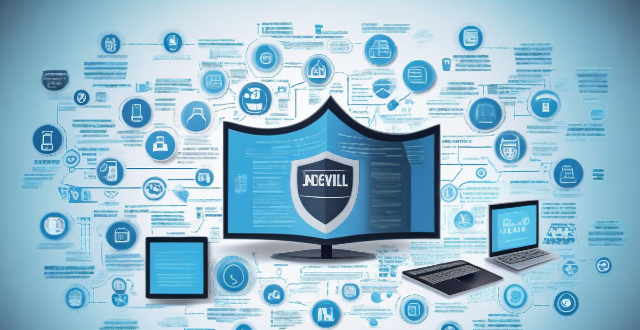
How does a VPN service work ?
A VPN (Virtual Private Network) is a service that encrypts users' internet traffic and masks their IP addresses to protect their privacy and security online. It consists of a client software installed on the user's device and a server that acts as an intermediary between the user and the internet. VPNs use tunneling protocols and encryption algorithms to establish secure connections, with options for both automated and manual configuration methods. They are particularly useful in masking users' IP addresses and ensuring data transmission security. However, some VPN services may impact internet speeds and raise privacy concerns if they collect and sell user data. When choosing a VPN service, consider its performance, reliability, and privacy policy.
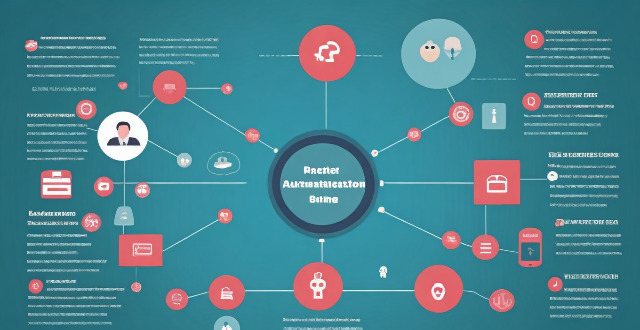
How does two-factor authentication enhance security ?
Two-factor authentication (2FA) is a security process that requires two different factors to verify the user's identity, enhancing security by reducing the risk of unauthorized access, providing alerts for suspicious activities, protecting against various types of attacks, increasing user confidence in online services, and helping maintain compliance with security standards. Its implementation should be carefully planned considering both security requirements and user convenience.

How do I set up a VPN service on my computer or mobile device ?
Setting up a VPN (Virtual Private Network) is an excellent way to ensure your online privacy, bypass geo-restrictions, and enhance your security on the internet. Here's a detailed guide to setting up a VPN service on your computer or mobile device: 1. Choose a VPN Service Provider: Research and select a reliable VPN service that suits your needs in terms of security, speed, and price. Ensure the provider offers apps for your operating system, whether it's Windows, macOS, Android, or iOS. 2. Sign Up for the Service: Visit the VPN service website and sign up for an account. Choose a payment plan and complete the subscription process. 3. Download and Install the VPN App: Once you have subscribed, download the VPN app from your provider's website or your device's app store. Install the app on your device following the standard installation procedures. 4. Configure the VPN App: Open the VPN app and log in using your account credentials. Select a server location; usually, the app will recommend the fastest or closest server to you. Customize the settings if needed, such as enabling startup with Windows or configuring the kill switch feature. 5. Connect to the VPN: Click the connect button in the VPN app to establish a connection to the chosen server. A secure and encrypted tunnel will be created between your device and the server. 6. Verify the VPN Connection: Check your IP address and location using online services like `ipleak.net` to ensure your real identity is concealed. Test the connection by trying to access content that is normally blocked in your region. 7. Troubleshooting: If you encounter connection issues, check your network settings or try connecting to a different server. Make sure your firewall and antivirus software are not blocking the VPN connection. 8. Regular Maintenance and Updates: Keep your VPN app updated to benefit from the latest security features and performance improvements. Monitor your data usage if your VPN service has bandwidth limitations. Additional Considerations: Look for VPN services that offer strong encryption protocols like OpenVPN or IKEv2 for maximum security. Ensure that your VPN service has a strict no-logs policy to protect your online activities from being recorded. Some VPN services allow multiple devices to be connected simultaneously under one account – consider this feature if you use multiple devices.

Should I use a bank or a currency exchange service ?
When it comes to exchanging currencies, you have two main options: banks and currency exchange services. Both have their advantages and disadvantages, so it's important to consider your specific needs before making a decision. Advantages of Using a Bank: - Security: Banks are generally considered more secure than currency exchange services because they are regulated by government agencies. Your money is protected by insurance policies, such as the Federal Deposit Insurance Corporation (FDIC) in the United States. - Convenience: Many banks offer online and mobile banking services, allowing you to easily manage your account and make transactions from anywhere. You can also withdraw cash from ATMs worldwide without additional fees. - Fees: Banks typically charge lower fees for currency exchange compared to currency exchange services. Some banks even offer fee-free currency exchange if you have an account with them. Advantages of Using a Currency Exchange Service: - Better Exchange Rates: Currency exchange services often offer better exchange rates than banks because they specialize in foreign currency exchange. This means you can get more money for your currency than if you were to use a bank. - No Fees: Many currency exchange services do not charge any fees for exchanging currencies. However, some may still charge a small commission or service fee. - Speed: Currency exchange services are usually faster than banks when it comes to exchanging currencies. They often have shorter processing times and can provide you with the currency you need quickly. Disadvantages of Using a Bank: - Limited Availability: Not all banks offer foreign currency exchange services, especially smaller local banks. You may need to visit multiple banks to find one that offers this service. - Higher Fees: As mentioned earlier, banks typically charge higher fees for currency exchange compared to currency exchange services. This can add up quickly if you need to exchange large amounts of currency. Disadvantages of Using a Currency Exchange Service: - Security Risks: Currency exchange services are not regulated by government agencies like banks are. This means there is a higher risk of fraud or theft when using these services. - Limited Locations: Currency exchange services may not be available in all locations, especially in rural areas or smaller towns. You may need to travel to a larger city or airport to find one. - Limited Services: Currency exchange services typically only offer foreign currency exchange and do not provide other banking services like checking accounts or loans. If you need additional financial services, you will need to use a separate bank.

What type of customer service can I expect at a high-end resort ?
When you visit a high-end resort, you can expect to receive exceptional customer service. The staff at these establishments are trained to provide personalized attention and ensure that your stay is comfortable and enjoyable. Some of the services you can expect include personalized attention, complimentary amenities, concierge services, room service, housekeeping services, and security and safety measures. Overall, a high-end resort will go above and beyond to make sure that your needs are met and that you have an unforgettable experience.

Which shopping apps have a strong focus on customer service and support ?
The provided text discusses the importance of customer service and support in shopping apps. It then goes on to highlight five notable shopping apps—Amazon, Shopify, Etsy, eBay, and Alibaba—that prioritize these aspects. Each app is described in terms of its unique features and services that enhance user experience. For Amazon, it's the live chat and email support, 24/7 availability, and the Mayday button for Fire devices users. Shopify is praised for its multichannel support, extensive knowledge base, and active community forums. Etsy is lauded for its personalized assistance, seller education, and resolution center. eBay's detailed resolution process, security measures, and seller protections are highlighted. Lastly, Alibaba is commended for its Trade Assurance program, legal services, and supplier verification. In conclusion, these shopping apps understand the significance of supporting their users throughout the shopping journey, each offering unique strengths in customer service and support.

What are the main threats to communication security ?
The text discusses the main threats to communication security, which include eavesdropping and unauthorized access, malware and viruses, social engineering and phishing, insider threats, and DoS attacks. It also provides mitigation strategies for each threat, such as encryption, secure networks, physical security, antivirus software, firewalls, software updates, awareness training, email filters, multi-factor authentication, access controls, monitoring and auditing, termination procedures, rate limiting, content delivery networks (CDNs), and intrusion detection systems (IDS).
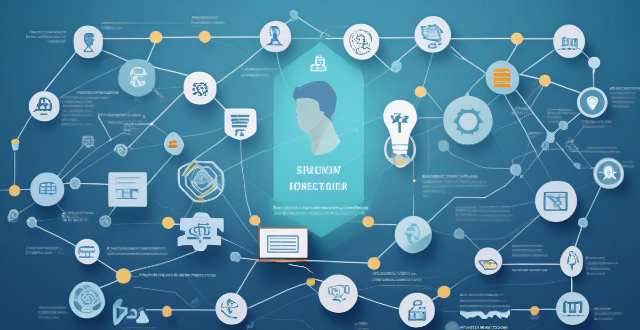
Can a VPN service protect me from hackers and cyber threats ?
VPN services create an encrypted connection over the Internet, allowing users to securely send and receive data as if their devices were on a private network. This enhances privacy by masking IP addresses, protects data on public Wi-Fi, and enables access to geo-restricted content. However, VPNs are not a complete cyber defense solution; they do not protect against all malware or phishing attacks. Trustworthiness of the provider is crucial, and legal and performance considerations should be noted. Responsible use includes pairing VPNs with other security measures and adhering to ethical guidelines. As technology advances, expect more sophisticated VPN services, but awareness about their role in cyber defense is also growing.
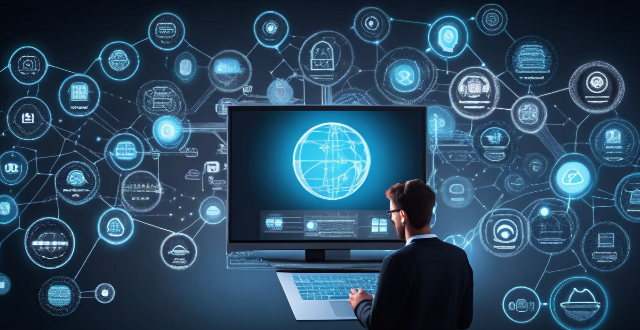
What is network slicing in telecommunications ?
Network slicing allows for multiple virtual networks on a shared physical infrastructure, enabling service providers to offer customized services with specific QoS requirements. Key features include customization, resource allocation, isolation, and flexibility. Benefits include improved efficiency, enhanced security, faster deployment, and better customer experience. Use cases range from smart cities to industrial IoT, telehealth, and enterprise services. Challenges in implementation include complexity, standardization, security concerns, and cost implications. The future outlook is promising, with network slicing expected to play a crucial role in enabling new services and applications as 5G technology becomes more widespread.

What features should I look for when choosing a home security system ?
When selecting a home security system, consider features likeWhen selecting a home security system, consider features like monitoring services, high-definition high-definition cameras with night vision and motion detection, smart home integration for remote control, sensors for intrusion and environmental hazards, and reliable customer support. Look for systems that offer additional benefits such as automation capabilities and come with a warranty for long-term peace of mind.

Are iPhone parallel imports eligible for Apple's after-sales service ?
iPhone parallel imports can be eligible for Apple's after-sales service if they meet certain conditions, including proof of purchase, valid warranty, no tampering, and region compatibility.

How often should I test my home security system to ensure it's working properly ?
Testing your home security system regularly is crucial for maintaining its effectiveness and ensuring that it functions as intended when you need it the most. Here are some guidelines on how often you should test various components of your home security system: - Alarms and Sensors: Monthly testing, check batteries every six months - Surveillance Cameras: Weekly check, review footage periodically - Keypads and Control Panels: Monthly verification, test backup power source every six months - Communication Systems: Quarterly testing, phone line check if using a landline - Environmental Sensors: Annually or seasonally testing, replace batteries annually Steps for testing your home security system include consulting your user manual, notifying authorities if connected to a monitoring service, performing visual inspections, testing each component according to recommended frequency, documenting results, and addressing any issues promptly. By following these guidelines and steps, you can ensure that your home security system remains reliable and effective in protecting your home and loved ones.

What is the relationship between energy efficiency and climate change, and how can it contribute to energy security ?
Energy efficiency is crucial for mitigating climate change and enhancing energy security. It reduces greenhouse gas emissions by decreasing fossil fuel consumption, lowering energy production needs, and promoting renewables. Energy efficiency also contributes to energy security by diversifying sources, reducing costs, and improving system reliability.

How do I contact customer service for my mobile operator ?
How to Contact Customer Service for Your Mobile Operator

What are the security concerns related to Smart Grid Technology ?
Smart grid technology, which uses digital communication technologies to monitor and control the flow of electricity, offers benefits such as increased efficiency and reliability. However, there are security concerns that need to be addressed, including cyber attacks, data breaches, insider threats, physical security risks, and interdependencies with other critical infrastructures. It is essential to implement strong cybersecurity measures, strict access controls, and robust physical security protocols to protect the system's integrity and confidentiality.
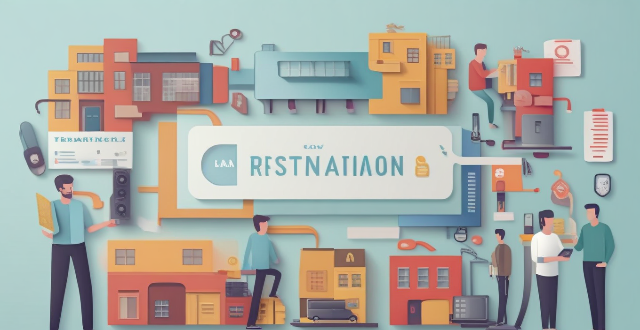
How can automation be used to improve customer service ?
Automation can significantly enhance customer service by streamlining processes, reducing errors, and providing consistent support. It enables personalized communication through chatbots and email automation, efficient processes via self-service options and backend automation, a consistent experience with standardized responses, cost-effective solutions through scalability, and continuous improvement using feedback loops. As technology progresses, the potential for automation in customer service will continue to expand, leading to more innovative ways to meet customer needs.

Why does my cell phone have no service in some places ?
Cell phone service can be affected by various factors, leading to no service or weak signal in certain areas. The main reasons include network coverage, physical obstructions, technical issues, and other external factors like weather conditions and congestion. It's essential to check with your cell phone provider if you frequently face service issues in specific locations.
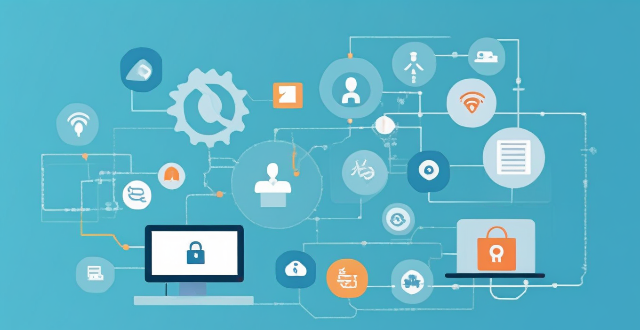
What are the security concerns related to IoT ?
The article discusses the major security concerns related to the Internet of Things (IoT), such as data privacy and confidentiality, device security, network security, physical security, and software vulnerabilities. It emphasizes the need for implementing appropriate security measures to ensure the secure deployment of IoT devices and protect sensitive information from unauthorized access.

What are the benefits of using a virtual private network (VPN) for network security protection ?
The text discusses the benefits of using a Virtual Private Network (VPN) for network security protection. It highlights seven key advantages: 1. **Encryption and Secure Data Transmission**: VPNs encrypt internet traffic, securing data transmission, especially on public Wi-Fi networks. 2. **Anonymity and Privacy**: By routing connections through remote servers, VPNs mask IP addresses and physical locations, enhancing online privacy. 3. **Access to Geo-Restricted Content**: VPNs enable users to bypass geographical restrictions, accessing blocked or restricted content. 4. **Protection Against Bandwidth Throttling**: VPNs can prevent ISPs from managing certain types of traffic by encrypting it. 5. **Enhanced Security on Public Networks**: Using a VPN on public networks adds an extra security layer against potential hackers. 6. **Remote Access to Work Networks**: For businesses, VPNs provide secure remote access to company resources. 7. **Avoid Censorship**: In regions with internet censorship, VPNs can help users access an unrestricted internet. The note emphasizes choosing a reputable VPN provider and practicing good cybersecurity habits for optimal protection.

How do firewalls contribute to network security ?
Firewalls are crucial for network security, offeringFirewalls are crucial for network security, offering, blocking unwanted connections, preventing preventing network intrusion, enforcing security policies, providing VPN support, integrating with other security systems, protecting against known threats, offering customizable features, ensuring scalability and performance, and reducing the risk of data breach.
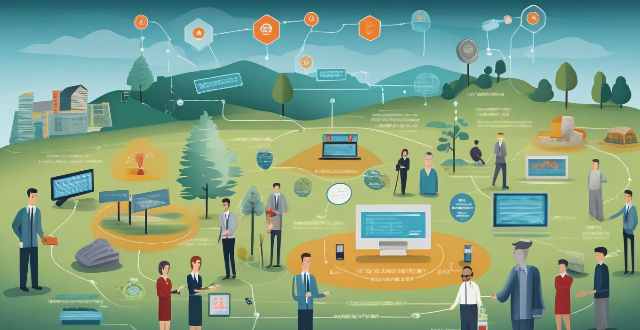
Can blockchain technology improve data security and privacy ?
Blockchain technology has been touted as a revolutionary tool that can improve data security and privacy. Its decentralized nature, encryption, and transparency make it difficult for attackers to compromise the network. Additionally, its anonymity, control over personal data, and smart contracts enhance privacy by giving individuals more control over their information.
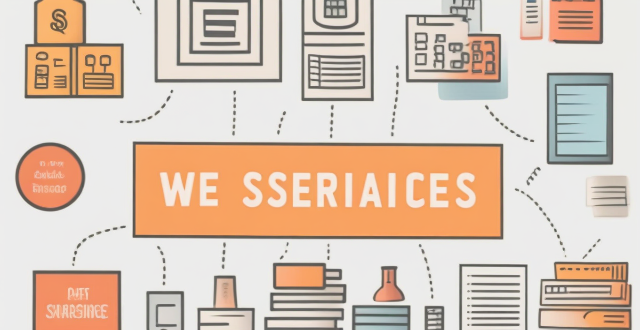
How can I compare different online shopping sites for their customer service ?
In this article, we discuss how to compare different online shopping sites for their customer service. The first step is to research and gather information by reading reviews and testimonials, checking social media presence, and asking for recommendations from friends or family. The second step is to analyze the information by comparing customer service options, evaluating response time, and assessing quality of service. The final step is to make a decision based on weighing pros and cons and trying before you buy. By following these steps, you can choose an online shopping site that offers excellent customer service and meets your needs.
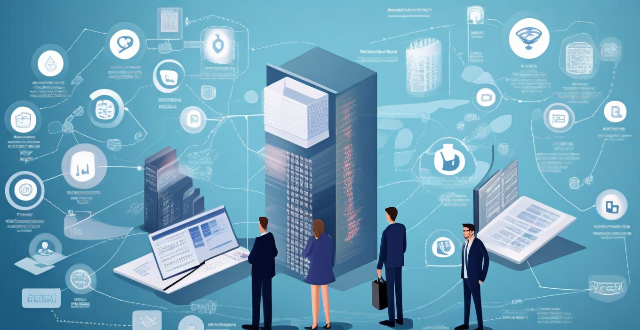
How do remote education platforms ensure data privacy and security ?
Remote education platforms ensure data privacy and security through encryption, access controls, two-factor authentication, regular security audits, and data retention policies. These measures help protect user data during transmission and storage, restrict access to sensitive information, add an extra layer of security, identify and fix vulnerabilities, and minimize the risk of data breaches.

Are there any advantages to using a tax refund service company instead of doing it myself ?
Using a tax refund service company offers several advantages, including time-saving, accuracy, expertise, convenience, and peace of mind. These services can help maximize refunds or minimize tax liability by ensuring accurate tax preparation and staying up-to-date with changing tax laws and regulations.

How does climate change affect food security and nutrition ?
Climate change significantly impacts global food security and nutrition by causing extreme weather events, altering ecosystems, reducing water availability, affecting marine life, posing agricultural challenges, and diminishing nutrient intake. Mitigation strategies include sustainable agriculture practices, dietary diversification, and research and development to ensure future food security and nutrition.